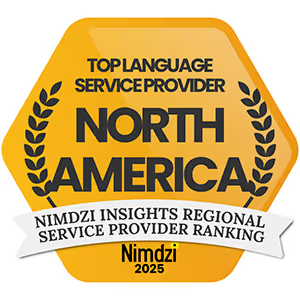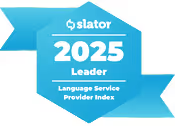Picture this: a patient in pain, searching for words they don’t know, while a provider struggles to convey life-saving instructions. In moments like these, language isn’t just a barrier — it’s a risk. That’s why language access isn’t optional; it’s essential for patient safety, legal compliance, and quality care.
Under Title VI, the ADA, and Section 1557 of the ACA, hospitals and healthcare providers are legally required to provide professional medical interpreters for Limited English Proficient (LEP), Deaf, and hard of hearing (HOH) patients. Yet, some organizations still rely on unqualified interpreters, putting both patients and themselves at risk.
Here’s what you need to know to stay compliant and ensure every patient receives the care they deserve.
The Affordable Care Act Strengthens Language Access Protections
Section 1557 of the Affordable Care Act (ACA) reinforces the rights of LEP and Deaf/HoH patients by:
- Banning minor children as interpreters except in life-threatening emergencies.
- Restricting bilingual staff from interpreting unless they are qualified.
- Granting LEP patients the right to take legal action for discrimination under the ACA’s non-discrimination provisions.
What Makes an Interpreter “Qualified” Under the ACA?
Not all bilingual individuals are qualified to interpret in healthcare. Under the ACA, a “qualified interpreter” must:
✔ Have demonstrated proficiency in medical terminology.
✔ Follow the interpreter code of ethics and standards of practice.
✔ Interpret accurately, effectively, and impartially to ensure clear communication.
Providers Are Legally Responsible for Effective Communication
Hospitals, health plans, clinics, and physicians must provide qualified interpreters — it is illegal to require a patient to bring their own interpreter. Even if a patient requests a family member to interpret, the provider remains 100% liable for ensuring effective communication.
Relying on untrained interpreters can lead to misinterpretation, medical errors, and legal risk.
Protect Patients and Stay Compliant
Medical interpretation is a legal and ethical responsibility. By ensuring access to qualified healthcare interpreters, providers protect both their patients and their organization from risk and ultimately deliver better care.
Learn how Martti's healthcare interpreters help ensure compliance and improve outcomes.
References:
ACA, Section 1557 - Section 1557: Ensuring Meaningful Access for Individuals with LEP | HHS.gov










